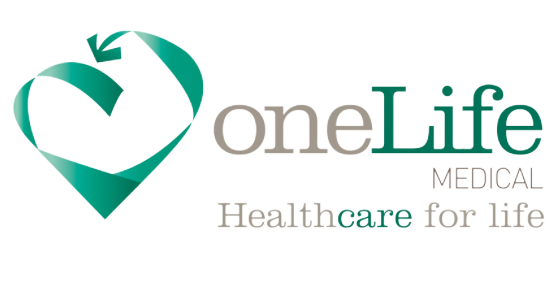Just because you look or feel well, it doesn’t mean you are in perfect health. Screening programs are designed for people without any signs or symptoms. So even if you feel healthy, it’s wise to keep up to date with your appointments. Following our guide can help you stay on top of your health, through every stage of life.
Melanoma and skin cancer – all ages
Skin checks are important for everyone. It’s important to get to know your skin and what’s normal for you, so that you notice any new spots or changes to existing freckles or moles. Also help your loved ones check areas that are hard to see and ask them to do the same for you. Talk to your doctor about your level of risk and advice on early detection. How often you get your skin checked depends on whether you are considered low, medium or high risk. If you are unsure about your risk, chat to your doctor.
Cervical cancer – teens and 20s
The National Cervical Screening Program reduces illness and death from cervical cancer. Women and people with a cervix aged 25 to 74 years of age are invited to have a cervical screening test every 5 years. Once you’ve had your first test, you’ll be added to the screening registry and be sent reminder letters for future tests.
Testicular cancer – men aged 18-39
Testicular cancer is most common in men aged 18-39. With treatment, more than 9 out of 10 men can be cured. All men should regularly check their testicles for any lumps or swelling. It is normal for one testicle to be slightly bigger or to hang lower than the other. If you notice any changes, lumps or swelling in your testicle, see your doctor straight away.
Cardiovascular disease – men and women in their 30s and 40s
The Heart Foundation recommends that people over 45 (over 35 for Aboriginal and Torres Strait Islanders) have a heart health check every two years. This can be performed by your GP and usually takes about 15 minutes. Your doctor will talk about lifestyle factors such as diet and exercise, whether you smoke, as well as family history. Your doctor will also take your blood pressure and recommend blood and urine tests. They will be looking out for high blood pressure, high cholesterol or kidney disease.
Diabetes type 2 – everyone from age 40 (or 18 if Aboriginal or Torres Strait Islander)
Diabetes is a group of conditions in which a person’s body cannot maintain healthy levels of sugar (glucose) in their blood. High sugar levels can cause health problems over time. Someone can have diabetes without experiencing any symptoms.
You can ask your doctor about your risk for diabetes. You can also estimate your risk of getting type 2 diabetes by using the Australian Type 2 Diabetes Risk Assessment Tool (AUSDRISK). This is a simple way for you to check your risk.
Bowel cancer – people over age 50
The National Bowel Cancer Screening Program is offered to all Australians aged 50-74. When you turn 50, the government will send you a Faecal Occult Blood Test (FOBT) in the mail. The test can detect minimal amounts of blood in your stool and involves taking samples from two bowel motions using the kit. These are then analysed at a laboratory, and if blood is detected, further tests may be required.
Breast cancer – women aged 50-74
Women aged 50-74 are invited via a letter from the Government for a free mammogram through BreastScreen Australia. Women aged 40-49, and those over 74, can also be screened free of charge on request. Mammograms are recommended every two years for women aged 50-74. During a mammogram, each breast is pressed between 2 X-ray plates, which spread the breast tissue out so that clear pictures can be taken.
Bone density scan – men and women over 50
Osteoporosis Australia says that men and women over 50 with risk factors may need a bone density scan to check for low bone density and osteoporosis. Some risk factors may also require people under 50 to have a scan. Talk to your doctor about your risk factors. A bone density scan measures the density of your bones, usually at hip and spine. You lie flat on a padded table and the arm of the machine passes over your body. The scan takes around 10-15 minutes.
Prostate cancer – mostly men aged 50+
Talk to your doctor about the risks and benefits of prostate cancer tests. Doctors have different opinions about whether men without symptoms of prostate cancer should be tested. If you decide to be tested there are two tests often used: Digital Rectal Examination (DRE) which involves your doctor inserting a gloved finger into the rectum to feel the prostate gland; and Prostate Specific Antigen (PSA) test which measures the level of PSA in your blood. It doesn’t specifically test for cancer.
Visual and hearing impairment – everyone aged 65+
Eye and hearing tests are recommended annually if you are over 65. To assess your vision, your GP will use a Snellen chart (the large chart with letters decreasing in size). To assess your hearing, your GP will ask you questions about your hearing to determine whether it’s declining.
Bulk-billing doctors in Alexandra Hills
One Life Medical is a bulk-billing practice in Alexandra Hills. Services include immunisations, general surgery, antenatal care, health assessments, ECG’s, cryotherapy, travel medicine, employment medicals, driver’s medicals and more. Allied health practitioners regularly visit our practice. These include a physiotherapist, podiatrist, hearing specialist and dietitian.
To book an appointment at One Life Medical, please call 07 3824 8144. Alternatively, you can book online or download the app for iPhone or Android devices and make bookings directly from your phone. For further information, please call reception on 07 3824 8144.
